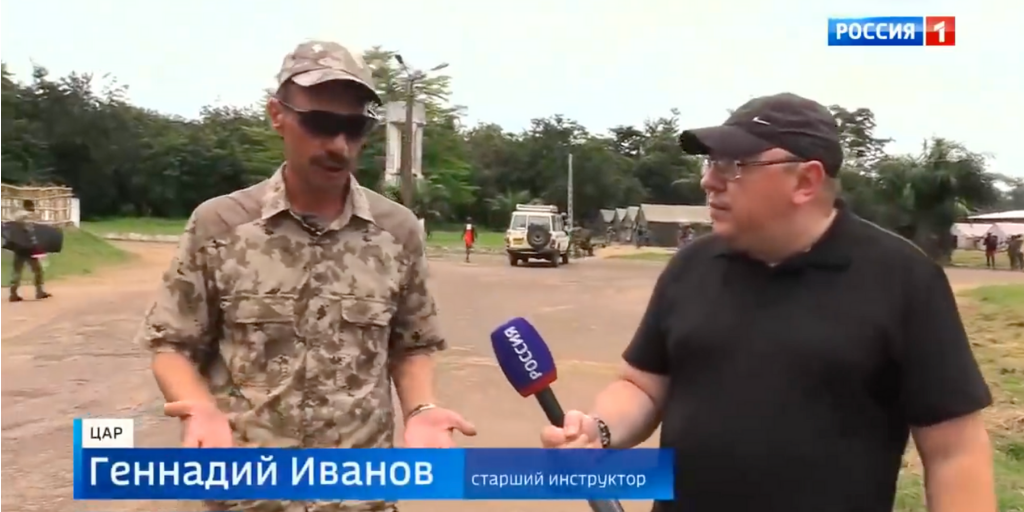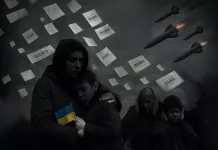
It is Sunday night on Russian state TV Rossiya 1. The propaganda host Dmitry Kiselyov presents a report from the Central African Republic (CAR):
“We simply work here on a contract to train the [local] fighters”, a Russian military instructor tells the TV reporter. “We have nothing to do with Wagner Private Military Company.”
To illustrate the instructor’s points, Rossiya 1 later in the report shows a piece of paper with “The Fighter’s 10 Commandments” from inside the camp – with Wagner Group’s logo on it.
From private trolls to private soldiers
This embarrassing mistake was spotted by the Moscow-based Conflict Intelligence Team (CIT) and reported by the independent Russian newspaper Novaya Gazeta.
«Вести недели» показали в ЦАР россиян, которые «не имеют никакого отношения к ЧВК Вагнера», но что-то пошло не так pic.twitter.com/rY8B4NmX7e
— CIT (@CITeam_ru) September 30, 2019
Click to see when the Wagner Group’s logo appears on the background of a piece of paper inside the Russian military training camp in CAR.
The issue of Wagner’s presence in CAR is particularly problematic as the group has been accused of the assassination of three independent Russian journalists who investigated Wagner’s activities in the country.
The Wagner Group has been linked to Yevgeny Prigozhin, who, according to US authorities, is also the owner of the St. Petersburg “troll factory”, the Internet Research Agency.
Not the first time
It is not often that disinformation is produced so carelessly that it exposes itself the way it did in Dmitry Kiselyov’s show this Sunday; but it does happen.
It happened to Pervyi Kanal, another Russian state-controlled TV channel when it used a sequence from a computer game and claimed that it showed battle scenes from Syria.
It happened to Rossiya 1’s sister channel, Rossiya 24, when a man in a costume was presented as “an advanced robot”.
And it happened to the state news agency RIA Novosti when an alleged a Russia-invented military robot turned out to be a Korean-made toy anyone can purchase online.




